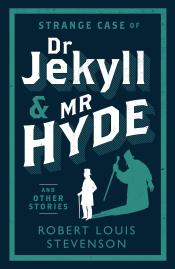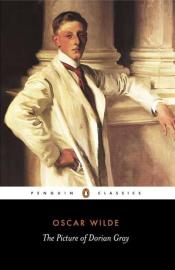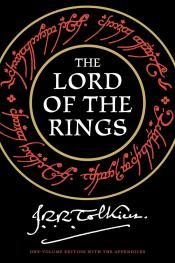

Robert Louis Stevenson’s 1886 novel The Strange Case of Dr. Jekyll and Mr. Hyde is considered a defining work of the Gothic Horror genre. Beneath the style and surface of the story, there’s a deeper theme, a question of human nature that many artists have illustrated and explored: What becomes of a life surrendered to the pursuits of power and pleasure?
Stevenson’s answer is Dr. Jekyll, a respected, sociable London physician who struggles with a shameful, unspoken secret.
Seeking relief from the pressures of his moral public life, the doctor designs an elixir that transforms his body and frees his mind from propriety and shame so he may embrace his darker instincts undiscovered. In the savage liberation of Mr. Hyde, Jekyll surrenders to a new—or hidden—side of himself, one of cunning criminality and carefree evil.
Then comes the moral turn: Hyde grows beyond Jekyll’s control, and the doctor realizes with despair that he is losing himself and will soon be trapped in the Hyde persona forevermore.

In a similar vein—and same Gothic Horror genre—Oscar Wilde’s 1891 classic The Picture of Dorian Gray composes a tragic parable on the folly of a man surrendering himself to base instinct, unbridled passion, and immoral pleasure.
Our young protagonist finds himself inspired by Lord Henry Wotton, a hedonistic aristocrat who preaches beauty and sensual pleasure as the only worthwhile pursuits in life. Following this mentorship, Gray makes a wish that will cost him his soul: he will remain young and beautiful, while only his portrait will age and crack under the weariness of vice.
Gray descends into a life of cruelty, opium, brothels, and murder that he eventually sees he cannot redeem. He faces his own ironic conclusion as he attempts to kill the depraved monster his portrait self has become.

Branching from Gothic Horror to the realm of fantasy, we can see a similar story unfolding in the works of J.R.R. Tolkien, most notably in the novels composing the Lord of the Rings saga. Many characters in this epic tale find themselves transformed by tests of character and twists of fate, albeit with more mixed results than described above. Greed affects Sméagol’s degeneration into Gollum; duty transforms ineffectual Bilbo into an intrepid adventurer; and the ranger Aragorn embraces his destiny as True King, to name a few. The most dramatic change of heart was perhaps that of the wizard Saruman. As Saruman the White, he led the White Council in protecting Middle Earth and keeping the One Ring from the hands of evildoers like Sauron. Yet as he came to believe in the inevitability of Sauron’s victory, he became Saruman of Many Colors, a traitor to the Council and a servant of Sauron. Like many modern political players today, he saw an opportunity to rise to great power on the coattails of an ostensibly unstoppable, morally corrupt despot, one driven only by lust and pride. Ultimately for Sauron, the ends did not justify the means, and he was slain by Gandalf the White, his immortal spirit left naked, powerless, and wandering forever.

Diving further into the depths of Hollywood, we encounter another tragically two-faced anti-hero in the character Walter White, protagonist of the AMC TV series Breaking Bad. Diagnosed with cancer, Walt fears for his family’s survival after his likely imminent demise, and through a convoluted series of events, becomes partner/mastermind of a methamphetamine-cooking operation. As Walt ventures further into the criminal underworld, he develops a distinct new persona, “Heisenberg,” an increasingly bold, prideful, and greedy drug-world kingpin who seems intent on hurtling headlong into corruption and ruin in a long-drawn arc of dramatic irony. Heisenberg reconnects Walt with his youthful sense of ambition and purpose, but his immoral means ultimately outpace his once-noble ends. Like Saruman the White, he becomes a casualty of his hubris and greed.
Is sensuality a cardinal sin or is the devil found not in sensual pleasure, per se, but rather in our seekers’ selfish, immoderate indulgence? Can a love of power be harnessed for good, or must such an appetite bring on its own destruction? We find these questions not only in the pages of classic literature but also in the real, modern world, in countless headlines of individuals bent on pursuing power and profit at seemingly any cost. What’s to become of these libertines and strivers, and what will their stories mean to us?